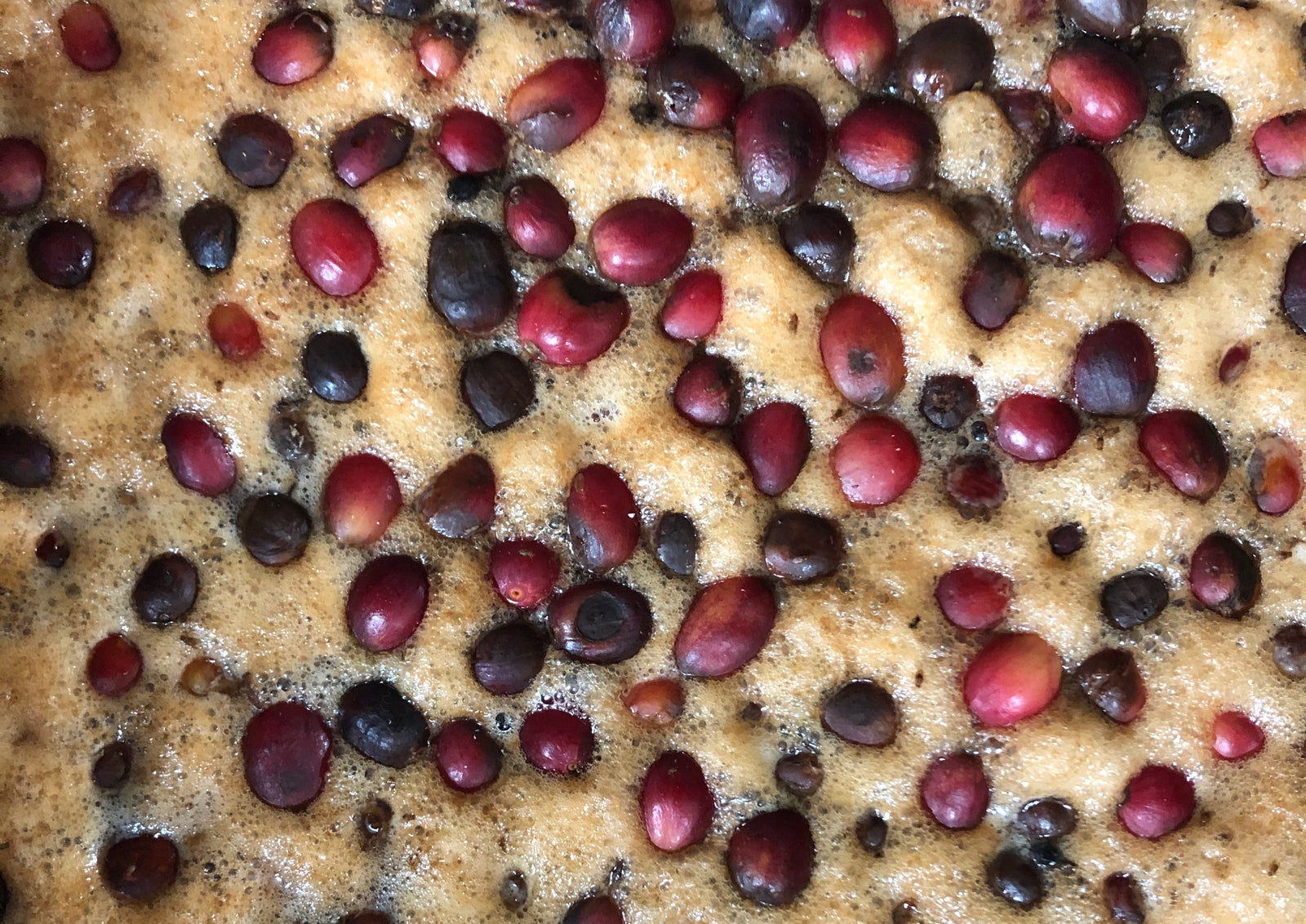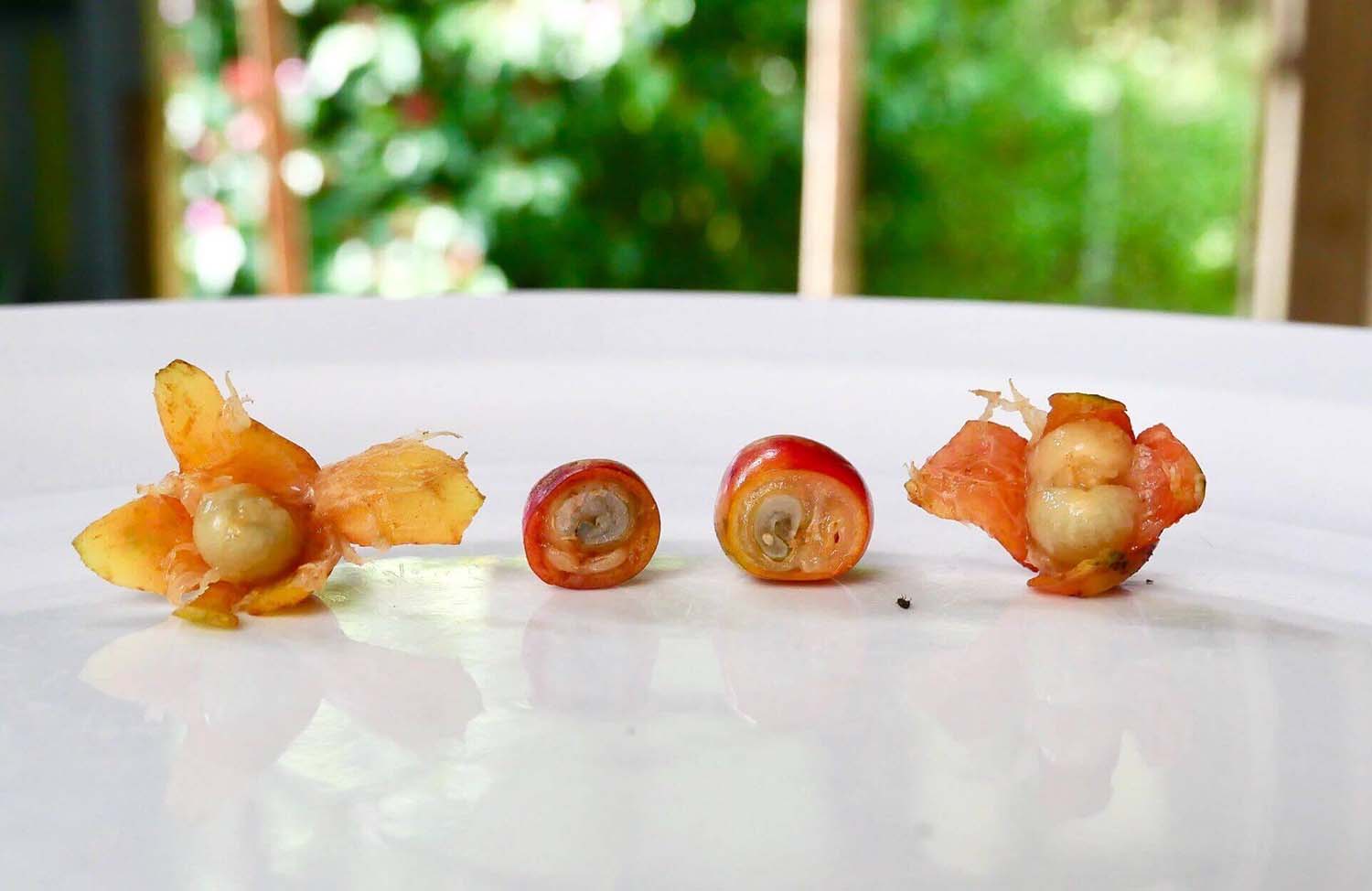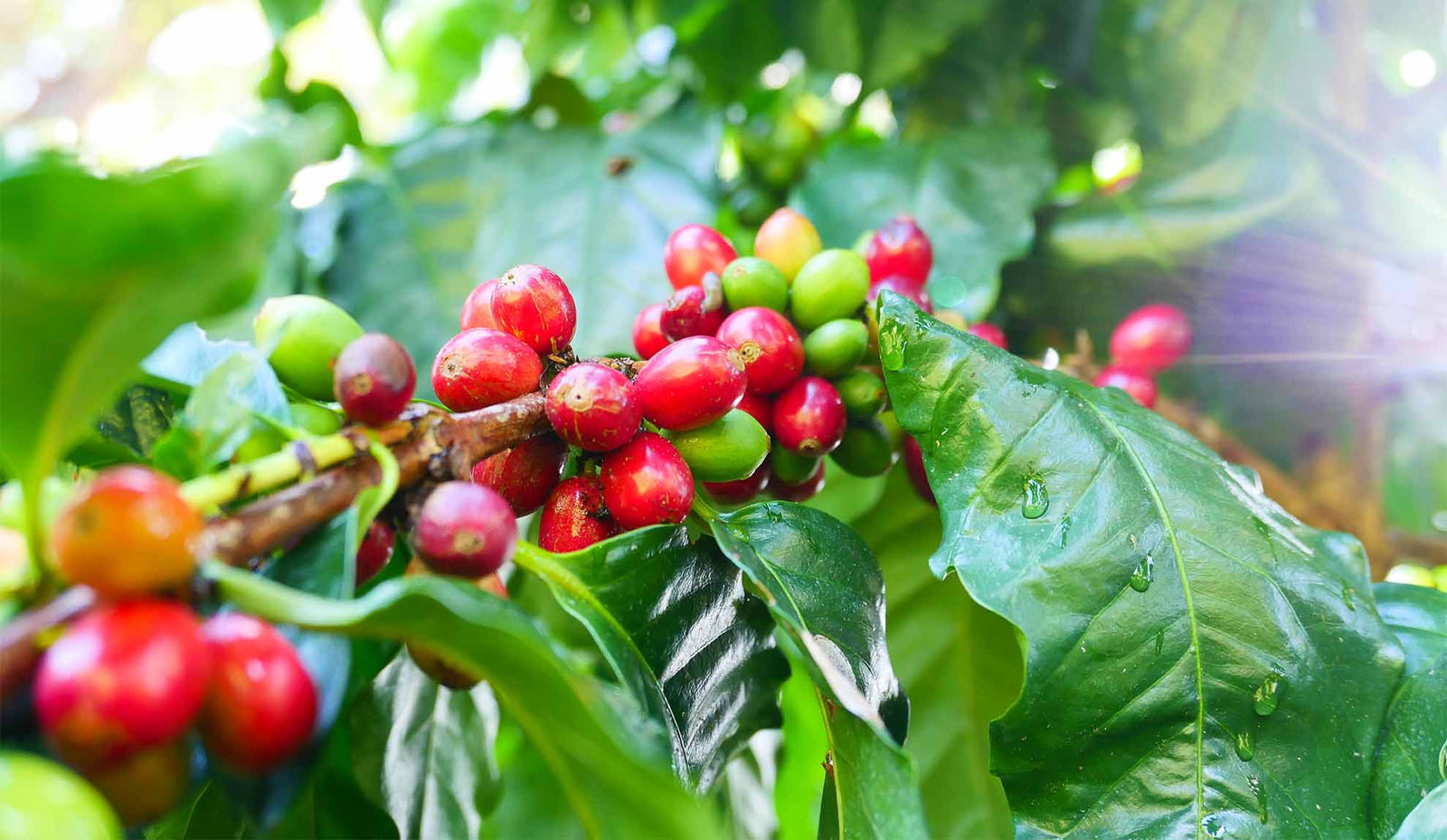"After conducting experiments with different strains of yeast, Juli determined two white wine yeasts were the winning strains... they improved the cup quality so significantly that it changed the coffee’s inherent flavor.
As a result of Juli’s work, Waialua Estate is now releasing their initial lots of wine yeast processed coffee. And guess what? We got our hands on most of it!
It was so impressive that we knew we had to make this our next offering for our Wild Hawaiian Coffee Club. This will be the coffee that will make people think of O‘ahu."
Honeyed Waialua is available in the Holiday Hawaiian Coffee Flights & with December's Hawaiian Coffee Club shipment.
Ask someone to name a Hawaiian island, many will say “O‘ahu.” Ask someone to name a Hawaiian coffee region, many will say “Kona.” For being the most popular Hawaiian island, O‘ahu isn’t known for its coffee. It’s probably more well-known for its beaches, surfing and the Dole Pineapple Plantation. Well, now there may be a coffee that will make people think of O‘ahu, and it’s a coffee produced by none other than Dole.
Turning sugarcane into coffee
On a plateau between Wahiawa and Waialua, 155 acres of coffee trees overlook O‘ahu’s famous North Shore. This area was once a sugarcane plantation operated by Waialua Sugar Company, a subsidiary of Dole. It closed its doors in 1996 as the Hawaii sugar industry declined. Dole, which owned half of the 12,000-acre farm, had to find alternative uses for the land.
One of Dole’s initiatives was a diversified agriculture program where they planted and tested different crops such as papaya, mango, and tropical flowers. Two of those test crops, coffee and cacao, were not only successful but also attracted the attention of CEO David Murdock. And thus, Waialua Estate Coffee and Chocolate was born.
Small change, big impact
Over the past couple of years, Waialua Estate has invested in furthering its coffee quality. To help with those efforts, Waialua enlisted Juli Burden, a licensed Q-Processing Professional studying agricultural research on O'ahu. They tasked her with a familiar business challenge: improve quality without significantly increasing costs.
Most of the 155 acres of Waialua Estate’s coffee is of one variety: Kona Typica. Juli appreciated this homogeneity. It meant she could focus her attention on coffee processing improvements instead of infrastructural improvements, which can be labor intensive and costly.
With the goal of finding the “best way to create something special,” Juli turned to a common microbe: yeast. Yeast processing has been gaining traction in recent years. More research is showing its positive effects on cup quality. Producers inoculate fermentation tanks with certain strains of yeast to bring out desirable characteristics in their coffees. Yeast may be a fairly new trend in coffee, but winemakers and bakers have relied on it for centuries.
 Waialua Oahu coffee, yeast fermented
Waialua Oahu coffee, yeast fermented
Waialua Estate was already using fermentation tanks for its washed coffees. This harnessed the power of naturally occurring yeast in the environment. The tanks, however, also housed other natural microbes. Certain microbes have the potential to blemish the coffee. By inoculating the tanks with yeast, the sheer volume of yeast cells can inhibit the growth of those undesirable microbes. Juli knew that if she wanted to take this fermentation step to the next level, she had to find the right yeasts.

In yeast processing, yeast is inoculated into fermentation tanks in the “Fermentation” step of the washed process shown above. (Source:The World Atlas of Coffee, James Hoffman)
Juli replicated Waialua’s processes as much as possible. She even replicated the geometry of Waialua’s fermentation tanks. After conducting experiments with different strains of yeast, Juli determined two white wine yeasts were the winning strains. These strains of Saccharomyces cerevisiaeimproved the cup quality so significantly that it “changed the coffee’s inherent flavor.”
“Yeast processing can bring out some of the best characteristics [in coffee] while muting some unfavorable ones. [Yeast] is complex and not fully understood. Just like any other processing method, there are pros and cons. This is just another tool in the toolbox.” - Juli Burden, Licensed Q Processor
As a result of Juli’s work, Waialua Estate is now releasing their initial lots of yeast processed coffee. And guess what? We got our hands on most of it!
In our cupping, we tasted honey, maca, gardenia, vanilla wafer and brown sugar all carried by a full body. It was so impressive that we knew we had to make this our next offering for our Wild Hawaiian Coffee Club. We are so excited to introduce this lot of Waialua Estate coffee. It’ll be one of the first yeast processed coffees from O‘ahu, from the only commercial coffee farm on O‘ahu. This will be the coffee that will make people think of O‘ahu.

Special thanks to Juli Burden and Michelle Yamaguchi for contributing to this piece.




